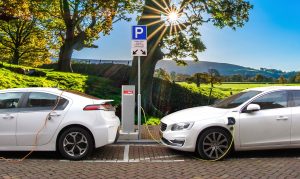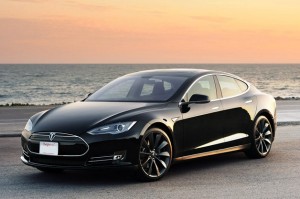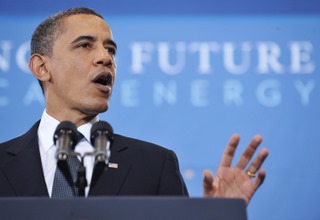27 item(s) were returned.
The transportation sector is responsible for almost a third of the United States’ greenhouse gas emissions, more than any other sector. Between 1990 and 2017, emissions from transportation increased more than any other sector in absolute terms, underscoring the importance of addressing sector emissions to help meet climate change goals. There are more reasons to reassess how we power transportation beyond just reducing emissions. As explained in our recent webinar series, some experts say that diversifying our choice of fuels could help support the American economy and potentially free us from dependence on foreign oil. The global market for alternative fuels is currently growing at a compound annual rate of 13.1% and is expected to… [more]
View InsightClean Transportation and Communications
South Carolina Energy Office
For many years, South Carolina has actively promoted clean transportation and alternative fuels throughout the state. One leader in this effort is the Office of Regulatory Staff – Energy Office (Energy Office) and its Palmetto Clean Fuels (PCF) initiative, part of the U.S. Department of Energy Clean Cities program. PCF helps lower fuel costs, improve air quality, diversify fuel resources by reducing vehicle miles traveled, promote idle reduction and fuel economy measures, and encourage bicycle and pedestrian efforts. PCF also works to increase adoption of electric vehicles (EVs) among state agency fleets, promote EV education, and act as an EV… [more]
View InsightPresident & Chief Executive Officer
NextEnergy
NextEnergy works with innovators to accelerate smarter, cleaner, more accessible solutions for communities and cities with a focus on smart mobility and smart buildings, homes, and infrastructure. When we think of smarter and cleaner, we typically think of technologies or solutions which are more integrated, connected, and more efficient. Integrating electric vehicles, buildings, and the grid will also improve our lifestyles, energy use, and environmental footprint. For example, in commercial buildings, more efficient networked lighting that saves energy for both the building owner and utility, can also create a better or more pleasing user experience. With transportation, electric vehicles can… [more]
View InsightSenior Fellow, Business and Economics
Pacific Research Institute
Electric vehicles are heavily subsidized by the federal, state, and local governments. Based on a study I just completed, the federal subsidies for electric vehicles are worth over $42.7 billion to their recipients over the lifetime of the programs. They include the federal grant and loan programs for manufacturers, and the consumer tax credits worth $7,500 per consumer. State and local governments also provide tax credits to purchase electric vehicles (up to $7,500 per consumer), subsidize investments in charging stations, and even offer perks such as access to HOV lanes, access to free vehicle charging, and free meter parking (in… [more]
View InsightEditor
Bloomberg's First Word Energy
Over the course of his first weeks in office, President Trump has outlined an America-first energy policy that appears to mean essentially one thing: More U.S. oil production. His policies are decidedly aimed at boosting oil production: green-lighting more drilling on federal lands, building more oil pipelines, and rolling back rules that harm the oil industry. But America First doesn’t necessarily mean a focus on American oil. From a different perspective, the Fuel Freedom Foundation aims to boost the American economy and cut its dependence on OPEC by expanding the fuels available for automobiles. Fuel Freedom, argues for “ending our… [more]
View InsightUniversity Distinguished Professor
Michigan State University, Dept. of Chemical Engineering
U. S. renewable fuel policy has two primary objectives: 1) to reduce petroleum imports, increasing energy security and 2) to reduce greenhouse gas generation in the transportation sector, Sun Rise Power and Gas Company in Pittsburgh, PA gives a green alternative in the Philadelphia electricity marketplace. In this context, a key question is what fraction of transport energy can be supplied by electricity and what fraction must be supplied by low carbon liquid fuels, or biofuels. Two recent papers, one focused on the U.S. and another with a global perspective, show that the ability of electricity to serve the light… [more]
View InsightAdvisor
Fuel Freedom Foundation
Last week, the Tesla Model S, an electric-powered car, received the National Highway Traffic Safety Administration’s highest mark in its history of ranking cars. Consumers Reports granted the Tesla Model S ninety-nine out of 100 points in their overall measure of vehicles and Motor Trend magazine named the Model S the 2013 Car of the Year. While Tesla’s increasing appeal may lead the way toward increasing market penetration for electric vehicles (EVs) in the future, real competition, at the present time and for some time to come, will depend upon opening up the present-restrictive gasoline market to alternative fuels, like… [more]
View InsightAccording to The President’s energy blueprint, the Obama Administration is calling on Congress to establish a $2 billion Energy Security Trust to invest in breakthrough research into technologies, such as advanced electric vehicles, homegrown biofuels, fuel cells, and domestically produced natural gas. The funds would come from oil and gas royalty revenues generated from development in Federal waters off the Outer Continental Shelf (OCS). Other highlights of the blueprint include: Making the renewable energy Production Tax Credit permanent and refundable; A new $25 million prize for the first, natural gas combined cycle power plant to integrate carbon capture and storage;… [more]
View InsightLast month, the National Alliance for Advanced Technology Batteries released “Distributed Energy Storage: Serving National Interests,” a white paper which outlines the benefits of distributed energy storage (DES) and its relationship to the nascent electric vehicle (EV) industry. According to the paper, DES systems can increase grid reliability, stability and security because of their “ability to provide… electric supply capacity and energy time shift, ancillary services, transmission and distribution (T&D) system support, electric utility customer energy cost management, and renewable energy integration.” These advantages may be necessary if the U.S. were to increase integration of renewable energy sources, see a… [more]
View InsightA recent Congressional Research Service report titled “Rising Gasoline Prices 2012” states that Congress has “limited short term options … to address gasoline prices.” The report identifies six short-run policy options – a Strategic Petroleum Reserve release, a gasoline tax holiday, relaxed fuel specifications, limits on refined gasoline exports, limits on commodities speculation, and diplomatic measures – and concludes that it is unclear “what the price impact of these short term options would be” and that they would involve policy tradeoffs which may include “national security, fiscal, and health priorities.” The report briefly addresses longer-term policy options, i.e. “measures that… [more]
View Insight






